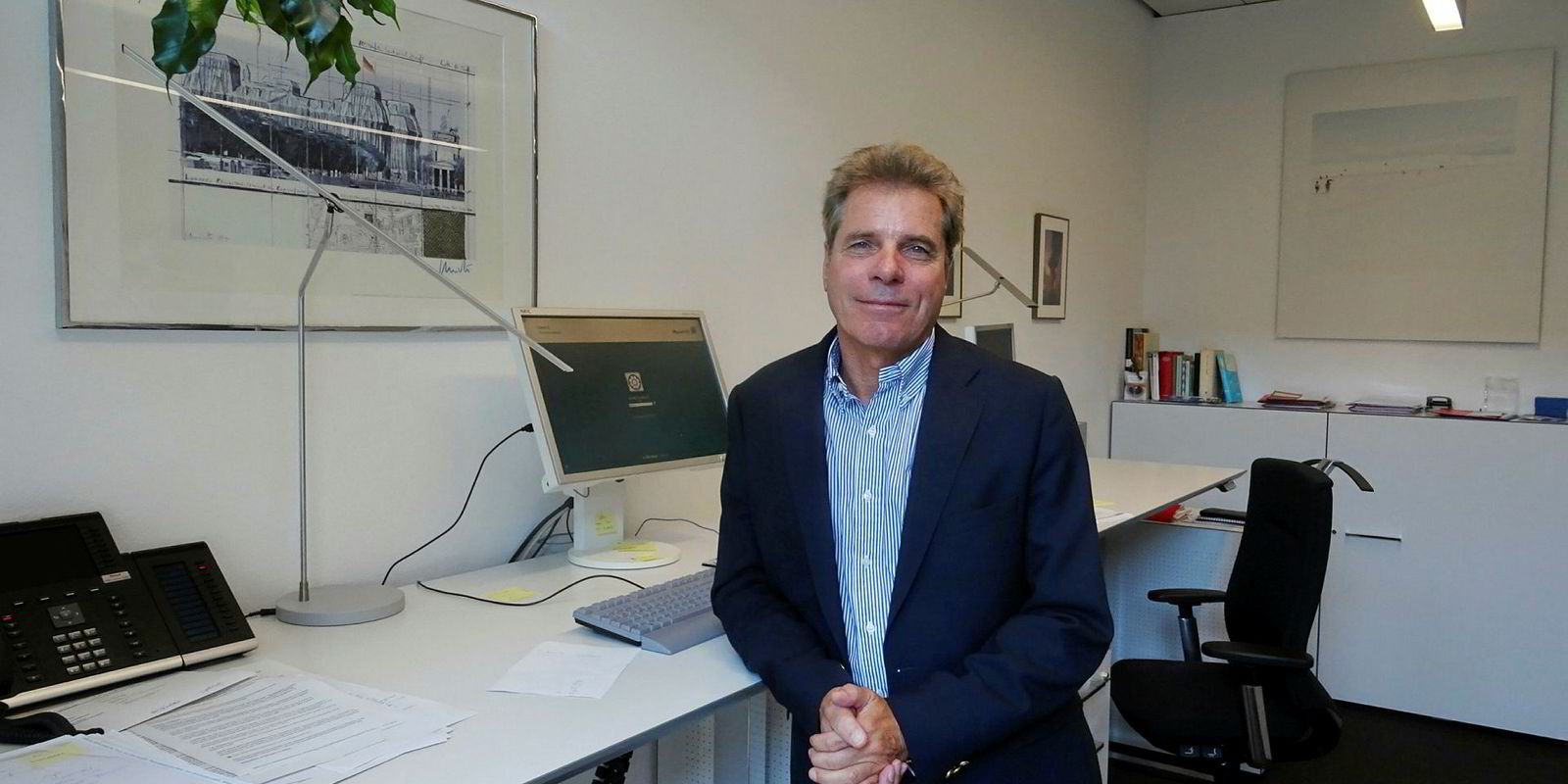Mark Edmondson, hull underwriter at the Chubb insurance group, is calling on fellow marine underwriters to stop obsessing over price and capacity and become more attuned to technical developments in shipping amid a profit drive at the Lloyd’s of London insurance market.
The International Union of Marine Insurance (IUMI) Ocean Hull Committee chairman says a better understanding of the assets that are being insured in the marine market is the way forward as the sector becomes increasingly commoditised.
Speaking ahead of the IUMI annual conference in Cape Town next week, he told TradeWinds: “From a risk perspective, the introduction of new technology is always an issue.
"Increasing automation, emission control technology, the increasing deployment of LNG and hybrid propulsion technology, increasing digitalisation and use of data are all current examples of new technology, which underwriters should be aware of and understand.”
Supply and demand
He said the view that hull insurance is driven by supply and demand is too simplistic for underwriters to accurately price risk.
“Hull insurance should not be considered simply as a price driven commodity. The assets we insure and the operation of those assets are complex and assessing new technology as the world fleet risk profile continues to change is an essential part of the underwriter’s role, irrespective of any market cycle,” he said.
Risk education of the next generation of marine and hull insurance practitioners is absolutely vital. IUMI and its Education Forum is playing an increasingly role in that process
“Risk education of the next generation of marine and hull insurance practitioners is absolutely vital. IUMI and its Education Forum is playing an increasingly role in that process,” he said.
Edmondson’s comments come amid recent optimism that the hull market is experiencing recovery in rates as some syndicates reduce marine capacity in response to the Lloyd’s market call for a recovery in profitability.
“We have witnessed a net reduction in capacity for mainstream hull business during the past 12 months, either through withdrawal or merger.
Time will tell whether that continues, potentially driven by consistently poor underwriting results and a general trend towards merger and acquisition within global property and casualty insurance,” Edmondson said.
He said that since the last year's IUMI gathering in Tokyo, hull capacity had been significantly reduced but warned that there are no guarantees that pricing will recover as a result if it is redistributed elsewhere around the globe.
Capacity withdrawn
“Some underwriters estimate that around $100m of capacity has been withdrawn from this particular class of business since the Tokyo conference was held in 2017.
"Countering that, albeit in part, has been a distribution strategy deployed by some underwriters to support new merger and acquisitions and cover holders able to access retail business locally, which in itself creates real capacity, although generally speaking in more niche areas of hull business,” he said.
“Whether an international market so burdened with overcapacity will be directly affected by anything other than a significant reduction in capacity remains to be seen. However, the market overall has performed consistently poorly and the contraction in capacity we have witnessed in the past few months is the clearest reaction by capital providers witnessed for some time,” he said.
Recent data from the Nordic Association of Marine Insurers suggests improvements in the claims environment is continuing.
However, Edmondson said that should be expected given the recent improvement in shipping’s safety management. “In many respects, against a widely acknowledged improving risk profile, that is no surprise,” he said.
He also pointed out that there are “some markets that have experienced a higher than average spike in major casualties”.






